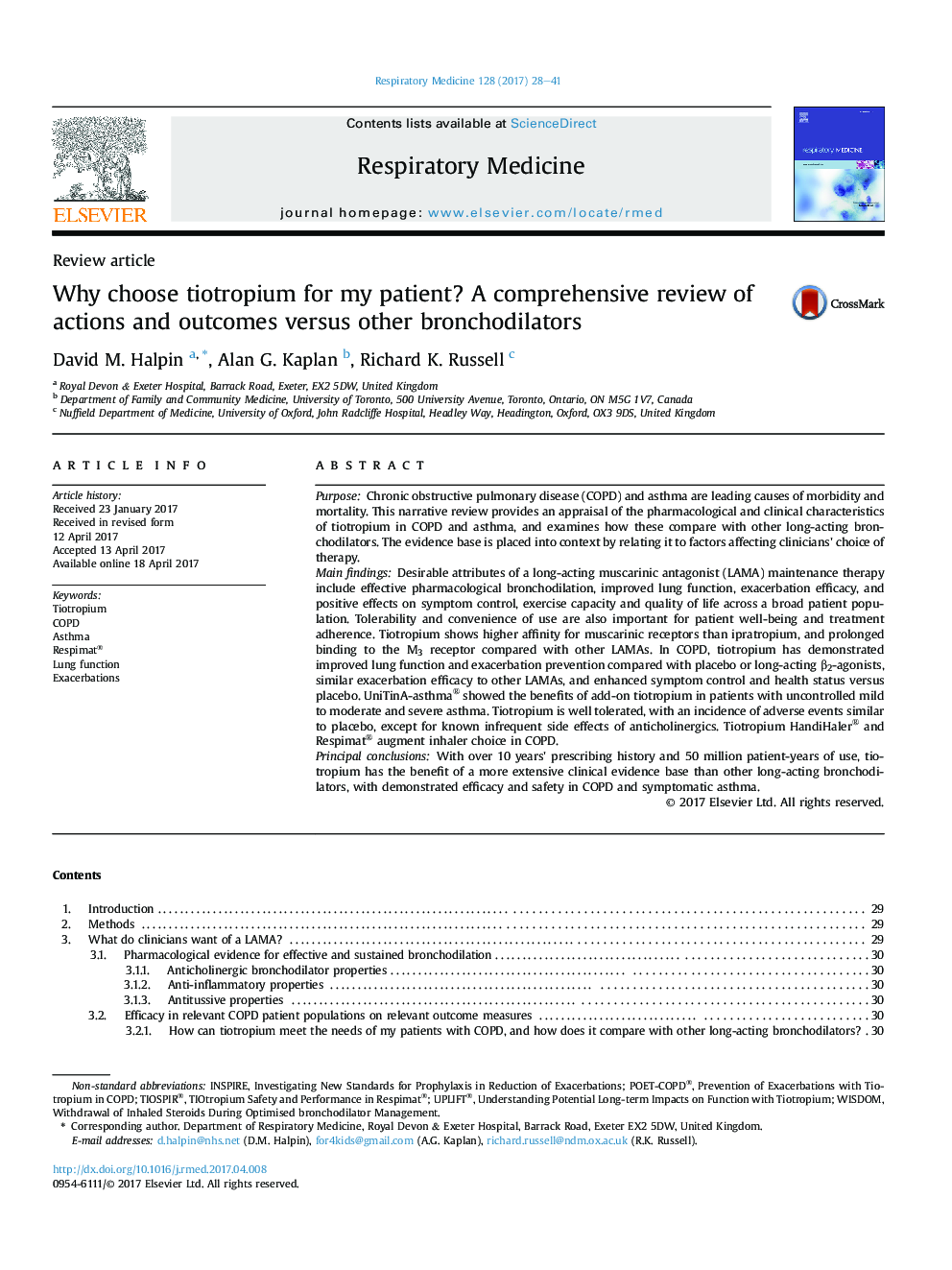| Article ID | Journal | Published Year | Pages | File Type |
|---|---|---|---|---|
| 5724966 | Respiratory Medicine | 2017 | 14 Pages |
â¢Narrative review and appraisal of tiotropium characteristics in COPD and asthma.â¢Tiotropium displays desirable attributes of a long-acting muscarinic antagonist.â¢Tiotropium provides effective pharmacological bronchodilation.â¢Tiotropium improves lung function with exacerbation efficacy and symptom control.â¢Extensive clinical evidence base versus other long-acting bronchodilators.
PurposeChronic obstructive pulmonary disease (COPD) and asthma are leading causes of morbidity and mortality. This narrative review provides an appraisal of the pharmacological and clinical characteristics of tiotropium in COPD and asthma, and examines how these compare with other long-acting bronchodilators. The evidence base is placed into context by relating it to factors affecting clinicians' choice of therapy.Main findingsDesirable attributes of a long-acting muscarinic antagonist (LAMA) maintenance therapy include effective pharmacological bronchodilation, improved lung function, exacerbation efficacy, and positive effects on symptom control, exercise capacity and quality of life across a broad patient population. Tolerability and convenience of use are also important for patient well-being and treatment adherence. Tiotropium shows higher affinity for muscarinic receptors than ipratropium, and prolonged binding to the M3 receptor compared with other LAMAs. In COPD, tiotropium has demonstrated improved lung function and exacerbation prevention compared with placebo or long-acting β2-agonists, similar exacerbation efficacy to other LAMAs, and enhanced symptom control and health status versus placebo. UniTinA-asthma® showed the benefits of add-on tiotropium in patients with uncontrolled mild to moderate and severe asthma. Tiotropium is well tolerated, with an incidence of adverse events similar to placebo, except for known infrequent side effects of anticholinergics. Tiotropium HandiHaler® and Respimat® augment inhaler choice in COPD.Principal conclusionsWith over 10 years' prescribing history and 50 million patient-years of use, tiotropium has the benefit of a more extensive clinical evidence base than other long-acting bronchodilators, with demonstrated efficacy and safety in COPD and symptomatic asthma.
